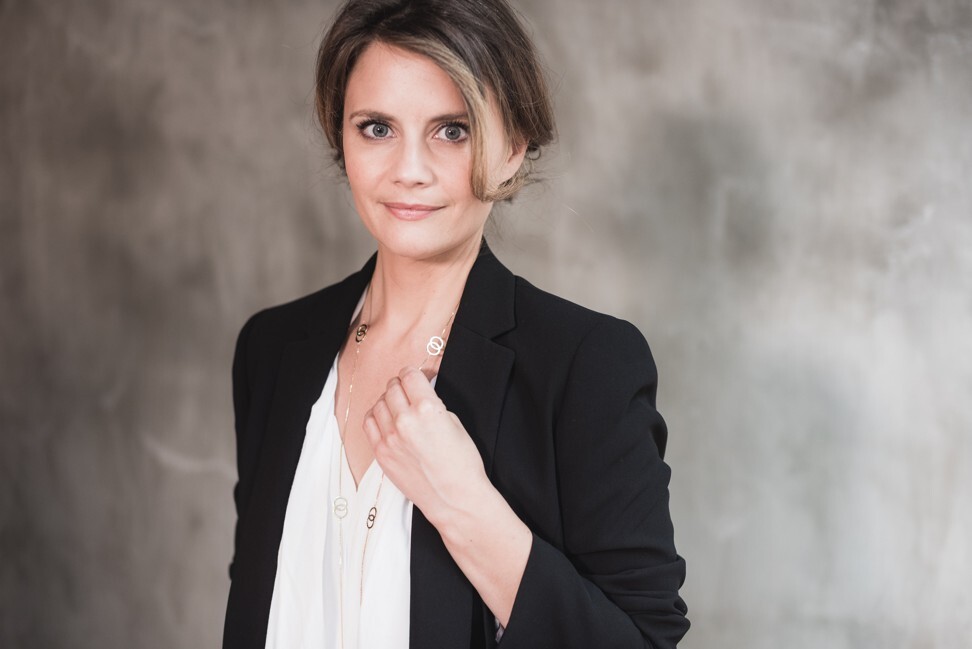
Self-love improves sex language and all relationships – nourish yourself first and love from a full cup
- Self-love means prioritising your own well-being and happiness, without being selfish
- It has a lot of benefits, including greater life balance, increased happiness, greater resilience and optimism

The self-love movement is at a pivotal point in our social history. It may appear that nearly everyone is preaching self-love, but many of us still don’t know how to practise it.
There is an unspoken pressure to look “perfect” and live equally “perfect” lives. This often entails being a certain weight, living and eating in a certain way, and achieving a near-impossible level of productivity on a daily basis.
Nevertheless, self-love has become the buzz word.
Even fashion houses such as Valentino and Gucci are homing in on the self-love concept. They boast their latest collections make a strong statement on elevating this ethos.

As I grow older, practising self-love has become second nature to me. I make self-affirmations every day to motivate myself and create a personal safe space. I do this by prioritising my needs, but not in a selfish way that affects or neglects the needs of others.
Some people believe self-love is about recognising self-harming behaviours like eating disorders, substance abuse, and other risky behaviours. It also means having the self-determination to stop them.
That is one extreme way to look at self-love, but in an ordinary sense, prioritising yourself could be as simple as giving yourself the time and space to just be yourself.
Nathalie Sommer, a certified relationship and intimacy coach, says choosing self-love means having a high regard for your own well-being and happiness. This means never settling for less than you deserve and not sacrificing your well-being for others. “It isn’t always easy. Many people struggle with prioritising their own needs and practising self-love, either because they haven’t seen it done, or they fear appearing selfish to others.”
Sommer points out that a growing number of studies show self-compassion (self-love), rather than self-esteem, may be the key to unlocking our potential for greatness.

She says: “Researchers have linked self-love to a lot of benefits including greater life balance, increased happiness, greater resilience, optimism, and less anxiety and depression. But practising self-love isn’t being selfish; it’s a necessity. If it’s done in a conscious way, self-love influences everything. This includes our relationships, our career, and how we cope with difficulties in life.”
Sommer says when we feel self-love, it’s more than just self-care. It’s about accepting yourself on every level: the physical, emotional, mental, and spiritual aspects.
It all begins with self-awareness, she points out. “To love yourself, you need to know who you are inside your heart, mind, body and spirit.”

On the physical level, it’s about taking care of yourself, connecting with your body and listening to its signals. Whether your body is telling you to rest or play, to give it more nourishment, or that a situation or a person doesn’t feel quite right, you need to listen, acknowledge, and act on it.
On the emotional level, embrace all emotions and know that they are all temporary. “Be honest with yourself about how you feel without judging or labelling them as good or bad.”
On the mental level, watch your thoughts and know you are not them. “Train your mind to stop judging yourself, to stop focusing on what you think is lacking, and to stop comparing yourself to others. Instead, be grateful for what you have and for your qualities.”

Sommer points out that you can feed your partner plenty of love without depleting your self-love tank. “Find out their love language and tell them yours so you can both be fed. The same goes for your sex language,” she says.
“Love from a place of feeling fulfilled, rather than a place of feeling empty. When you truly love yourself, you’ll know what boundaries you need to set,” she says.
Loving yourself can bring benefits to your partner too, says Sommer. “Self-love can lead to feeling more confident and more ready to communicate needs because there is a self-awareness around what these needs are and how you may want to address the meeting of those needs with a partner.”
Don’t forget that the relationship you have with yourself is the most important and one you’ll have for the rest of your life. So why not make it the best relationship you’ve got by practising self-love?
And when partners lack self-love, the quality of the relationship becomes toxic, she warns. “It’s because you’re simply trying to fill the void rather than build love from within. Relationships become healthy when each partner embodies a healthy dose of self-love.”
By showing yourself love, you’ll set the tone for how you want others to treat you in a relationship. When you treat yourself without respect or love, you are giving others permission to do the same, she says.
Sommer says self-love can also benefit sex in a relationship. “Getting to know your body and accepting your body in the process is self-love. When we understand our desires, explore and voice them to our partners we can be fed in them and therefore experience deeper intimacy.”

Sommer adds: “I see this in my coaching work all the time, where women don’t fully receive sexual pleasure because they feel they must give. Self-love in the bedroom is for women to prioritise their pleasure and to be assertive about asking for what they want.”
Self-love plays a big role in our relationships with others, Sommer explains. “When you shift your mindset to view your relationship with yourself just like any other relationship you desire with someone else, your relationship will thrive.
“Don’t forget that the relationship you have with yourself is the most important and one you’ll have for the rest of your life. So why not make it the best relationship you’ve got by practising self-love?”
Luisa Tam is a Post correspondent who also hosts video tutorials on Cantonese language that are now part of Cathay Pacific’s in-flight entertainment programme